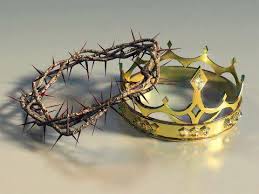 The Christmas story really isn’t for kids, when you think about it. The way we tell it, it usually is-sweet baby Jesus, adoring mom looking down, angels gazing longingly down from Heaven, cattle lowing, everyone in a neat semi-circle surrounding the baby, complete with halo. But, the real story? Stinky stable, stinky shepherds, pregnant, out-of-wedlock teen, one step away from being executed, visions of extraterrestrial creatures who terrify all who witness them? Not really a kids’ story.
The Christmas story really isn’t for kids, when you think about it. The way we tell it, it usually is-sweet baby Jesus, adoring mom looking down, angels gazing longingly down from Heaven, cattle lowing, everyone in a neat semi-circle surrounding the baby, complete with halo. But, the real story? Stinky stable, stinky shepherds, pregnant, out-of-wedlock teen, one step away from being executed, visions of extraterrestrial creatures who terrify all who witness them? Not really a kids’ story.
But, perhaps the least G-rated part of the Christmas story is Herod’s slaughter of the innocents. King Herod, a prince of a guy who had no qualms whatsoever killing his family members when he feared challenges to his throne, learned the ancient prophecies had been fulfilled, that a king had been born. After being thwarted in his attempts to use the wise men as pawns to help him find the baby Jesus, Herod responded true to form: he sent soldiers to butcher every male child two and younger in Bethlehem. Just to be sure. Can’t have any challengers to the throne, can we? That wouldn’t do.
I know. Insane, right? Who would do such a thing? Surely, a mad king.
Yet, how often are we little Herods of our own lives? In Romans 8, Paul tells us that the natural tendency of our hearts is to live as enemies of God. The gospel is the good news that God has called us to Him, to reconcile us to Him through paying the debt for our sins with the blood of His Son, Jesus. The Incarnation is the down payment on that gift, that promise, that good news.
But, when God saves us, He claims us as His own. We are His adopted sons and daughters, with all the rights, joys, and responsibilities that new status carries. We are no longer gods of our own lives (to think we ever were is a lie, really, because we were never gods, but slaves, enslaved to sin and its power over us). And, God’s claims over our lives run smack into our self-centeredness, our desire to be our own gods. So, we respond in one of two ways, maybe both: we reject the claims of Christ over our lives altogether, attempting to run God out of our lives, like Herod out of Bethlehem. Or, as Tim Keller says, we try to “tame” God through our good works and our religion, seeking to make him obligated to us for being so wonderful. “If I do this for you, God, then you can bless me in the ways I demand”- which is the same as being kings over our own lives, only we’re vainly trying to make God our servant. Both are the ways of Herod.
There is another way, however. The way of a poor, frightened, marginalized peasant girl of the same region and time, a social galaxy divorced from Herod. This girl also learned that the king would be born: in her case, much more intimately. Even now, this king was growing inside her, radically changing her life, and the life of the world, forever. This king was not merely a political threat, as Herod perceived; this king threatened her very identity, her safety, her marriage, her reputation, and her heart. And yet, her response to this news was also radically different: “I am the servant of the Lord; let it be to me according to your word.” Mary was completely surrendered to God’s will, and it changed everything. Her life was transformed, in painful ways to be sure, but in beautiful, glorious, and transcendent ways, as well. No matter how well history remembers Herod, millions for millennia have called Mary blessed.
The same choice awaits us all. The King has come, and offers us everything. He asks for the lordship of our lives in return. We all have to decide: slaughter or surrender. Who is your King?
Leave a Reply